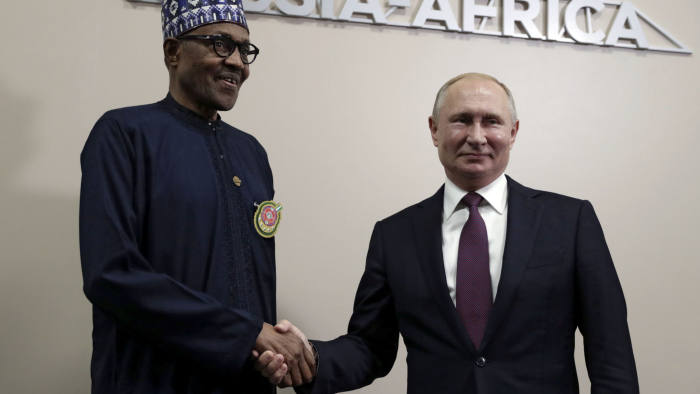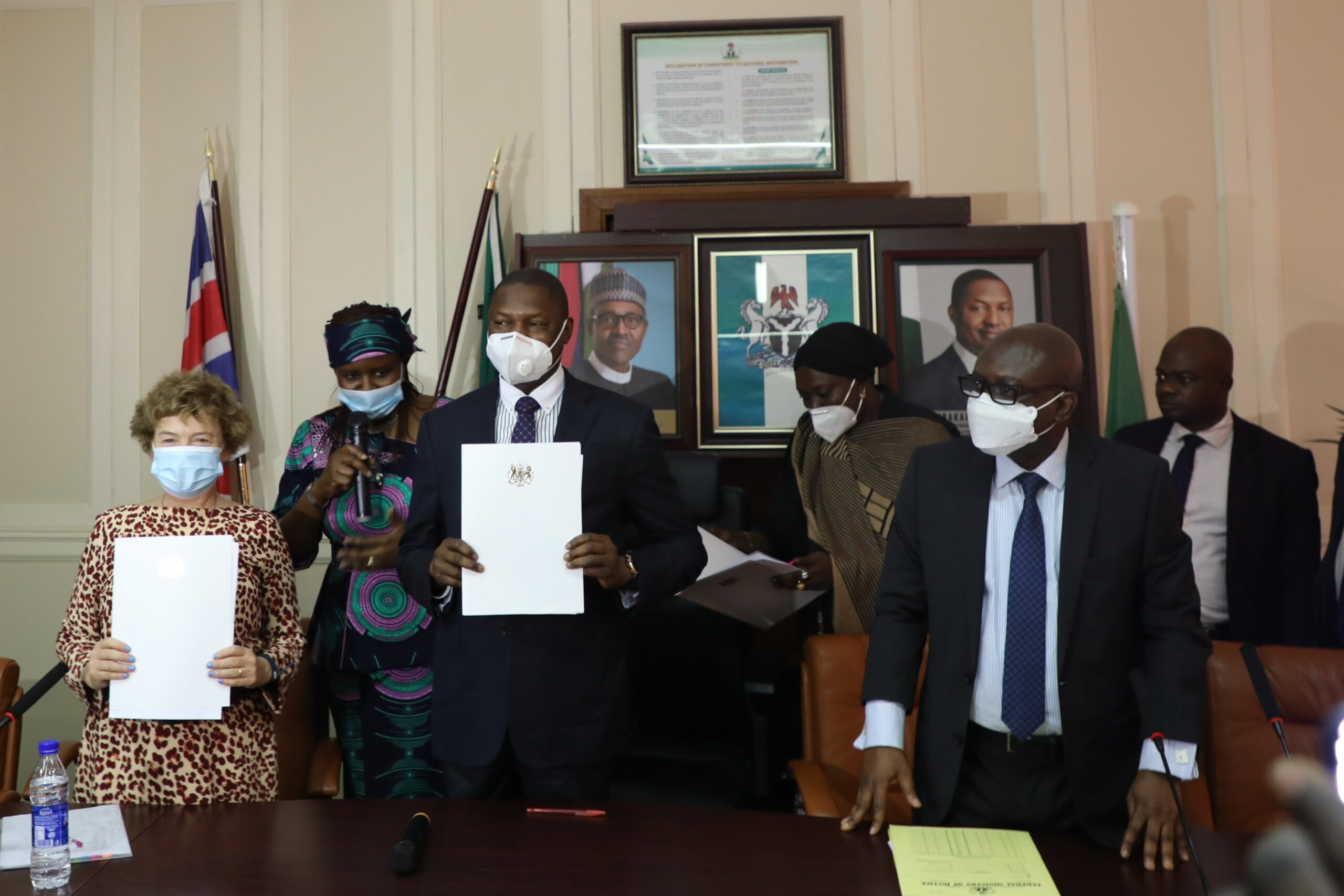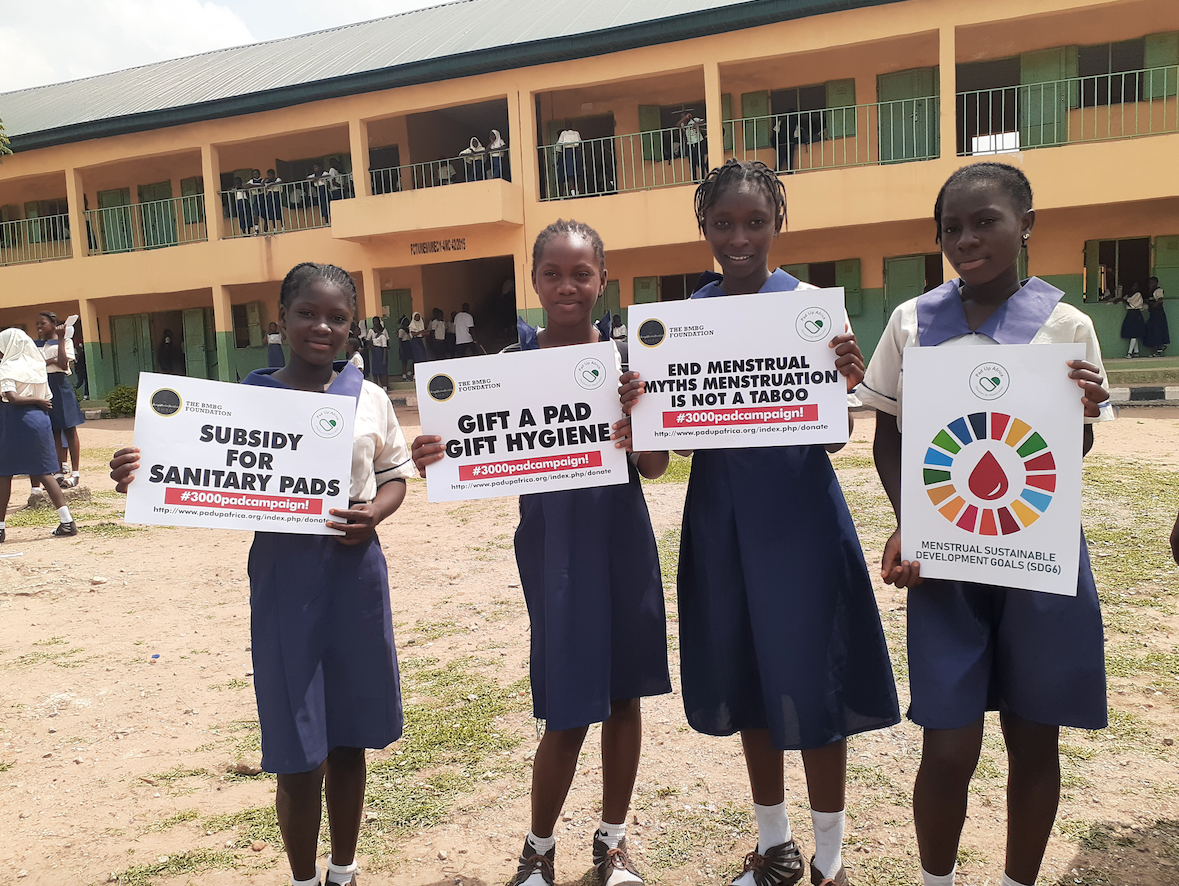BY VIVIAN CHIME AND LIUBOV GLAZUNOVA
In October 2019, Russia held the first Africa-Russia summit. Dozens of African leaders attended in the hope to energise and reform the partnership dating back to the 1960s. The agenda of the summit seemed broad and ambitious. However, in practice, the talks narrowed down to quite conventional topics: weapons, mining, and fossil fuels.
During the summit, Russian energy minister Alexander Novak vowed to “widen and deepen” the cooperation with Nigerian fossil fuels producers. At the time two Russian companies, Lukoil and Gazprom, showed a clear appetite for Nigerian oil and gas.
They are not alone. In recent years, such oil giants as Shell, Exxon, Total, and Eni secured fresh deals with Nigeria’s National Petroleum Corporation, competing for the country’s rich natural resources. The Nigerian government, on its part, has shown little opposition to these carbon-intensive activities while acknowledging the acute dependency on oil revenues.
Advertisement
Such pledges directly contradict the last assessment of the International Energy Agency (IEA). In a recent report, the body calls for an immediate ban on all new oil and natural gas projects. Otherwise, the goal of limiting the global temperature rise to 1.5 °C will become unachievable.
Instead, experts suggest investing in renewable energy infrastructure across the region. Despite having some bottlenecks, this market offers rich opportunities in Africa to those who are brave enough to enter it first, they said.
“We can start looking at investment in wind power, solar energy, creating more jobs in sectors we want to see in future, agriculture and key items or strategies to focus on in passing the oil and gas industry,” said Olumide Idowu, climate activist and co-founder International Climate Change Initiative (ICCDI).
Advertisement
TESTING THE WATERS
Instead of transitioning to renewables, Russian oil companies have been trying to exploit Nigeria’s natural resources for the last decade.
Lukoil, for example, entered the deep-water project at the OML-140 oil extraction facility offshore Nigeria in September 2014. A block with an area the size of Rome (1.2 thousand sq. km) is located 135 km from the coast.
The Russian oil giant owns 18 percent of this project, which is operated by Chevron. The deal was largely regarded as a cautious attempt to test the waters on African territory.
Advertisement

The Russia-Africa summit proved these assumptions. On October 24, 2019, Lukoil’s president Vagit Alekperov and Mele Kolo Kyari, managing director of Nigerian National Petroleum Corporation (NNPC), signed a memorandum of understanding to increase fossil fuel projects.
According to this document, both parties are to consider cooperation in the exploration and extraction of hydrocarbons in Nigeria. In addition, Lukoil pledged to estimate possible technical assistance to its Nigerian counterpart.
On its part, Gazprom’s plans of a joint venture with NNPC were focused on developing gas infrastructure. Established in 2009, the enterprise yielded few results. In spite of this, energy minister Novak still said in 2019 that this partnership should be revived.
RELIANCE ON FOSSIL FUELS
Advertisement
A year and a half after that meeting in Sochi, everything is different. Oil prices plunged following the pandemic and lockdown that caused a general decline in global economic activities. Fossil fuel companies started begging to sell off their oil, because, without commensurate demand, excess crude lacked adequate storage.
Nigeria’s oil sector was hit hard, thus causing a deep dive in its economy which led to a recession — the first time since 2016. This was as a result of the country’s heavy dependence on the sale of crude for foreign exchange.
Advertisement
The nation cut down on its federal budget from N10.6 trillion ($25.7bn) to N10. 5 trillion ($25.5bn), the amount of oil produced was reduced from 2.18 million barrels per day to about 1.70 million barrels per day. Oil prices also reduced from the benchmark of $57 per barrel to $15 per barrel.
“For us in Nigeria, the oil prices plunge had a devastating effect on the economy: the government revenue and expenditure forecasts had to be revised downwards and we also picked up a bit more debt just to keep the ship of state afloat”, recalls Joe Nwakwue, an oil and gas consultant partner with Zera Advisory and Consulting.
Advertisement
“This state of affairs where we depend solely on one commodity for revenue and spend is not sustainable in both the short and long term. We must urgently devise and implement a workable revenue diversification plan”, he adds.
OIL REVENUE: A CURSE OR A BLESSING?
Advertisement
Experts agree that the 2020 oil collapse highlighted the need for Nigeria to diversify its energy sources. However, they suggest different solutions.
Idowu, of the International Climate Change Initiative, argues that, with sustainability at the front burner in the global landscape, deepening a partnership in the oil and gas sector is a misplaced priority, he said.
“If you want to help a country [to invest], why can’t you look at the country’s agenda and plan towards sustainability? If you are building a partnership to strengthen the oil sector in a country and everybody all over the world is talking about moving from fossil fuel to renewable energy, are you doing such country harm or you are trying to leverage on our incapable leaders?”, said the activist.
He advises that instead of “waiting for Russian oil investments” —which would not enable it to achieve its climate goals— Nigeria should rethink what would be its “transition strategy” towards a greener future.
Meanwhile, Nwakwue is of the view that Nigeria and Russia could have investments coming into the oil and gas sector without compromising on its climate goals. He believes that investments are needed for the country to develop its economy.
“This is like asking a hungry man if he should insist on a balanced diet or nothing. We do not have such luxury. We need energy investments to achieve our development and poverty reduction goals”, says the consultant.
He adds that Nigeria’s energy balance “will undoubtedly become greener and cleaner with time” but the country still needs oil revenues to ensure economic growth, which, for its part, will pay for the green transition.
“My former boss used to say that oil got us into this mess and oil will get us out of it. I would agree with him to the extent that we do the right things going forward”, Nwakwue claims.

RETHINKING STRATEGIES
The shrinking global oil demand in combination with the accelerated transition towards cleaner energy systems forced many fossil fuel producers to rethink their investment strategies.
According to the lead analyst of the Russian National Energy Security Fund, Igor Yuskov, Russian oil and gas companies had to review their plans on new investment abroad after the collapse of oil prices in 2020.
Additionally, the agreement between OPEC+ countries (which includes Russia and Nigeria) has put a cap on oil extraction and forced producers to tighten their belts.
“The Russia-Africa summit was largely a political event, and Moscow needed something to entice African leaders. And they promised investments. However, in reality, extracting hydrocarbons in Africa is very risky, and in the current situation companies have to think twice”, says Yushkov.
To adapt to the new market, Russian fossil fuel producers began to include renewables in their development strategies, researching wind and power technologies both for their own use and for export, says Senior Researcher at the Institute for African Studies of the Russian Academy of Sciences, Olga Kulkova.
“Interestingly, Russian companies invest more in renewable energy sources abroad. In particular, Lukoil’s green capacities in Europe are almost 10 times higher than in Russia”, Kulkova points out.
A PROMISING LAND
Africa has a big potential for green energy production, says Nataliya Zaiser, Chair of the Board at Africa Business Initiative and Vaidai Club expert. The continent enjoys vast solar and wind resources, she adds
“Russia, naturally, is not the number one country in the green technologies market. But it has taken the course on their development and already has some results, such as Rosatom’s wind-powered generators. So, if we want to enter this market, why not do it together with our long-term partners and friends?” she adds.
But there is a catch. Poorly-developed electric grid and security concerns are holding international investors back.
As Zaizer explains, extracting solar or wind energy in African countries is no problem, but delivering it to the customer might be. Currently, there is no continent-wide power grid, for example, and conflicts and armed groups endanger the stability of supply.
However, experts agree that Russian companies can start by contributing to create the regional electric grid Africa lacks so desperately. They could do this, for example, by acting as contractors in building energy infrastructure, said Igor Yushkov. This would not only generate profits and unlock further investment but also benefit the country’s reputation abroad.
Kulkova suggests that Nigeria has the potential of becoming a “testing ground” for Russian companies hoping to enter the green energy market.
“It would be very useful to gain experience in implementing projects in such a large market as the Nigerian one, with the prospect of applying and adapting best practices for expanding to other African countries”, she says.
During the climate summit organised by US President Joe Biden, both Nigerian and Russian presidents reaffirmed their commitment to the Paris Agreement and their willingness to cooperate with other world leaders to combat the climate crisis.
Although their partnership in the field of green energy is yet to begin, experts from both countries agree that it will benefit all sides.
This report was originally published by Climate Tracker as part of the Global Mentorship for Young Media Professionals






